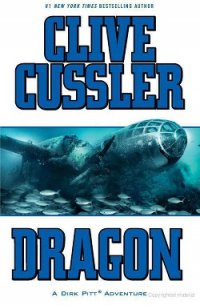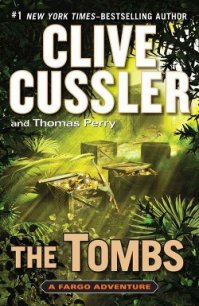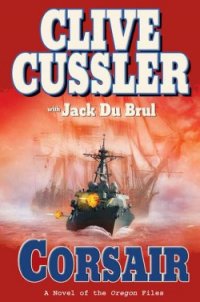The Jungle - Cussler Clive (читать книги без .TXT) 📗
Juan had planned to send their plane out of the country, but with the possibility of a new job soon he told the pilot to park it and find himself a hotel room in the city. They hefted their guns and equipment in nondescript nylon bags and made their way to where a row of helicopters was backed up to a Cyclone fence about fifty yards from the General Aviation terminal building. These were all civilian choppers. For the most part they were painted white with a stripe of color across their noses and along their flanks.
One, however, was a glossy black and looked as menacing as a gunship, though she carried no visible weapons. This was the Corporation’s MD 520N, a state-of-the-art helo that vented exhaust through its tail rather than relying on a secondary rotor. This NOTAR system made it the quietest jet-powered helicopter in the world.
The pilot saw the four men and one woman approaching and began hitting switches in the cockpit to fire the turbine.
It would be a tight squeeze, but the 520 had more than enough power to take them all out to the Oregon.
“Looks like it went well,” the pilot remarked when Juan opened the passenger door and shoved his equipment bag under his seat.
“Nothing to it,” Cabrillo said in typical fashion.
George “Gomez” Adams knew better. The veteran pilot could tell by their swagger when they were approaching that things had gotten dicey and that they’d handled it well. “Who’s the new guy?”
“MacD Lawless. He’s a Fortran operative who got nabbed outside of Kabul. Seemed a waste to let them behead him.”
“We keeping him?”
“Maybe.”
“I don’t like guys who are better-looking than me,” Gomez said. With his gunslinger mustache and matinee idol looks, there weren’t many men in the world who qualified.
“Can’t handle a little competition,” Juan grinned.
“Exactly.” Adams looked over his shoulder and thrust out his hand to MacD. “So long as you never beat me out with the ladies, we’ll be fine.”
It was clear Lawless had no idea what to make of that statement, but he shook Adams’s hand anyway. “No problem. So long as you never crash with me aboard, we’ll be better than fine.”
“Deal.” Gomez turned his attention back to the chopper, radioing the control tower to get flight authorization.
Juan said to Lawless, “When we get to the ship, the first thing we’ll do is get you a secure link to your people. They must be going nuts, about now. Same thing with your folks, if they’ve been told.”
“I doubt Fortran would have contacted them yet. I was grabbed less than forty-eight hours ago.”
“Okay. One less thing to worry about.”
A minute later, the turbine shrieked as Adams fed in more power. The airframe shuddered, and then everything became smooth when the skids lifted from the concrete pad.
Gomez fought his instincts to hotdog it, so they rose at a sedate pace and started flying out over the mangroves and mudflats to the north of the sprawling city of fifteen million. A dense pall of smog cut visibility dramatically so that Karachi’s office towers and high-rise apartment buildings appeared indistinct in the distance. Everything looked like the color of rust, the buildings, the air, even the water in the enclosed inner harbor. It was only when one looked west, out toward the ocean, that there was any true color. The water was a deep sapphire blue. They flashed over the China Creek, where the main port was located, and Baba Channel, which led to the open sea. It was crowded with all manner of shipping awaiting its turn at the docks.
They flew beyond the barrier islands, and soon the smog gave way to clear air. The sun cast a dazzling silver strip across the waves as it rose higher into the sky behind them.
More ships were streaming toward the port or were outbound laden with goods. Their wakes were like white scars. One ship directly ahead of them showed no wake.
By modern standards, she was just midsized at over five hundred and sixty feet. The containership passing off her port side was over twice as long. Their target was also of an outdated design. Built prior to the industry switchover to standardized containers, she was designed to carry her cargo in five deep holds, each secured with a hatch and serviced by a quintet of spindly derricks. Her superstructure was placed just aft of amidships and was topped by a single funnel. Bridge wings and catwalks hung off it like wrought-iron fire escapes. She carried two lifeboats in davits above the main deck. Her bow was like an axhead while her fantail had a little of that champagne-glass elegance.
All this could be seen from a distance. It wasn’t until the chopper was much closer that details emerged. The ship was a rust bucket, a scow that should have been chopped into scrap years ago. Paint peeled in patches all over her hull and decking as if she were infected with some sort of maritime eczema. The paint scheme itself was a patchwork of mismatched colors daubed over one another with no eye at all for aesthetics. Rust formed in pools on the deck, oozed from scuppers and the hawsehole, and streaked the sides of the superstructure like reddish brown guano.
The deck was a tangled jumble of broken machinery, oil drums, and various other junk, including, inexplicably, a washing machine and a massive tire from a tractor.
“You’ve got to be kidding me,” MacD muttered when the true nature of the ship was revealed. “Is this some sort of con?”
“She may not be pretty,” Gomez Adams said, “but she sure is ugly.”
“Trust me when I tell you that it’s not what it seems,” Juan assured him. “For the time being we’re not going to let you in on any of her secrets, but secrets she has.”
“What, that she was Teddy Roosevelt’s troopship when he went to Cuba?”
Juan laughed.
Linc added, “No. The Oregon was Noah’s first attempt at the Ark.”
“I’d believe that one too.”
Gomez swooped around to the aft of the ship, where there was a helipad marked out on the rearmost cargo hatch. A crewman stood by in case the pilot needed help landing, but Adams didn’t need any directions. He flared the chopper directly over the big faded letter H and settled it in the exact center. He killed the engine, and its persistent whine died down to silence and the rotor blades emerged from their shimmering mirage of motion as they slowed.
“Ladies and gentlemen, welcome to the MV Oregon,” Adams said. “The current temperature is sixty-eight degrees. The local time is eleven eighteen. Please be aware that items in the overhead may have shifted during our flight. Thank you for flying with us today, and we hope you will use us in the future.”
“Forget it,” Linda told him as she opened the rear door. “Your rewards program sucks, and my peanuts were stale.”
Juan once again marveled at the team he had assembled. Less than twelve hours earlier they had been rolling down the side of a mountain with a Hellfire missile boring in on them and now they were joking as if they didn’t have a care in the world. He reminded himself that he shouldn’t be too surprised. This was the kind of life they had chosen for themselves. If they couldn’t joke about it afterward, they wouldn’t last five minutes.
Max Hanley approached from the safety of the superstructure. In deference to the sun, he had a battered Dodgers cap covering what little remained of his ginger hair. Hanley was a little above average in height and was starting to show his age around his middle and in the wrinkles spiderwebbing from the corners of his eyes, but he moved well, and with his anvil-sized hands he could take care of himself with no problem. He wore a pair of tan coveralls that showed a spot of grease on one elbow, meaning he had just come up from the Oregon’s revolutionary engine room. With him was Dr. Julia Huxley. A Navy-trained physician, Hux wore a customary white coat over her lush 1950s pinup curves, with her hair tied back in a ponytail. Brisk, almost brusque, when she was working on a patient, she was easygoing the rest of the time. She’d been Juan’s doctor when he had part of his leg blown off by a Chinese gunboat years earlier when the Corporation was on a mission for NUMA, the National Underwater and Marine Agency.




